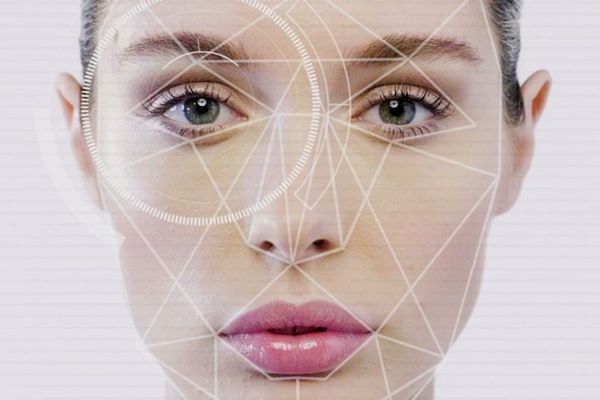Artificial intelligence (AI) is rapidly transforming numerous industries, and the world of skincare and skin health is no exception. In 2024, we’re witnessing a surge in AI-powered applications that are fundamentally changing how we approach our skin’s well-being. From personalised product recommendations to advanced diagnostics, AI is poised to usher in a new era of proactive and data-driven skincare.
The AI Revolution in Skincare
At its core, AI involves the simulation of human intelligence by machines, especially computer systems. Its applications range from simple automation to complex problem-solving. In the skincare industry, AI’s influence spans multiple facets, including product recommendation, diagnostic tools, personalised skincare, and consumer engagement.
Product Development and Innovation
AI is significantly enhancing the product development process in the skincare sector. Traditionally, creating a new skincare product requires extensive research, testing, and iteration. AI simplifies and accelerates this process through data analysis and predictive algorithms.
- Data-Driven Formulation: AI systems analyse vast amounts of data from various sources, including scientific research, consumer feedback, and market trends. This data helps in identifying which ingredients are most effective for specific skin types or conditions, leading to the creation of targeted products. For instance, AI can help narrow down the number of compound combinations to be tried in lab.
- Trend Analysis: AI algorithms can scan social media, skin health blogs, and e-commerce sites to identify emerging trends. This real-time trend analysis allows brands to quickly adapt to changing consumer preferences and stay ahead of the competition. Companies can develop products that resonate with current market demands, ensuring higher success rates upon launch.
The Power of Personalised Skincare
One of the most transformative impacts of AI in skincare is its ability to offer highly personalised experiences. Personalisation in skincare was once limited to expert consultations, but AI makes it accessible to everyone.
Traditionally, skincare routines have relied on a one-size-fits-all approach, often leading to frustration and ineffectiveness.
AI algorithms, however, can analyse vast amounts of data, including an individual’s skin type, concerns, lifestyle habits, and even environmental factors, to create truly customised regimens.
- Skin Analysis: Nowadays, an AI-powered app can take a selfie of your face and utilise sophisticated image recognition software to identify wrinkles, hyperpigmentation, or sun damage.
- Recommendations: The app could then analyse your data, such as age, location, and even your genetics, to recommend a targeted selection of products with the most effective ingredients for your specific needs. This level of personalisation ensures that you’re not just applying products, but rather investing in a data-driven approach to achieving healthy, radiant skin.
AI-Driven Skin Analysis: Early Detection
Early diagnosis of skin concerns is crucial for effective treatment. AI is playing a pivotal role in this area by empowering the development of advanced skin analysis tools. These tools, often integrated into mobile apps or handheld devices, utilise AI-powered image recognition to analyse skin conditions with unprecedented accuracy.
For instance, AI algorithms can be trained to detect subtle changes in skin texture, pigmentation, and even potential cancerous lesions. This allows for early intervention and treatment, potentially preventing more serious skin issues from developing. Furthermore, AI-powered analysis can track the progress of existing skin conditions over time, enabling users and dermatologists to adjust treatment plans accordingly.
Benefits of AI in Skin Health
The incorporation of artificial intelligence (AI) in the field of skin health is transforming how we understand, diagnose, and treat various skin conditions. AI’s advanced capabilities offer numerous benefits, improving both the efficiency of healthcare professionals and the overall experience and outcomes for patients.
Here are some key benefits of AI in skin health:
1. Enhanced Diagnostic Accuracy
AI-powered diagnostic tools significantly improve the accuracy of detecting and diagnosing skin conditions.
- Consistency: Unlike human practitioners, AI systems are not prone to fatigue or subjective bias, ensuring consistent diagnostic performance.
- Customised Skincare Regimens: AI can analyse data such as skin type, age, genetics, lifestyle, and environmental factors to recommend personalised skincare routines and products. This tailored approach increases the effectiveness of treatments and enhances skin health.
- Adaptive Treatments: AI can continuously learn from ongoing skin health data and adapt treatment plans in real time, ensuring the most effective and responsive care.
2. Continuous Monitoring and Management
AI facilitates continuous monitoring and management of skin conditions, providing real-time insights and adjustments.
- Wearable Devices: AI-integrated wearable devices can monitor skin health indicators like hydration levels, UV exposure, and skin pH. This continuous data collection helps in tracking skin changes over time and adjusting care as needed.
- Smart Mirrors and Apps: AI-powered smart mirrors and mobile applications can scan the skin daily, offering insights into changes and suggesting necessary adjustments to skincare routines.
3. Enhanced Accessibility
AI makes advanced dermatological care more accessible to a broader population.
- Teledermatology: AI-powered telehealth platforms allow individuals to receive expert skin health assessments and advice remotely. This is particularly beneficial for those living in rural or underserved areas with limited access to dermatologists.
- Cost-Effective Solutions: AI-driven diagnostics and treatment recommendations can reduce the need for in-person visits, lowering healthcare costs and making quality skin care more affordable.
4. Improved Research and Development
AI accelerates research and development in dermatology by analysing large datasets to uncover new insights and trends.
- Data Analysis: AI can process and analyse vast amounts of clinical data, identifying patterns and correlations that might be missed by human researchers. This accelerates the discovery of new treatments and interventions.
- Predictive Modelling: AI can predict the outcomes of different treatment approaches, helping researchers and practitioners develop more effective and targeted therapies.
5. Optimised Clinical Workflows
AI optimises clinical workflows, allowing healthcare professionals to focus more on patient care.
- Administrative Efficiency: AI can handle administrative tasks such as scheduling, documentation, and follow-up reminders, reducing the burden on healthcare staff and allowing them to spend more time with patients.
- Decision Support: AI provides decision support tools that help dermatologists make more informed and faster clinical decisions, improving the overall efficiency and quality of care.
6. Enhanced Patient Engagement
AI technologies enhance patient engagement by providing interactive and user-friendly tools.
- Interactive Platforms: AI-powered apps and platforms engage patients by providing personalised skincare advice, educational content, and interactive features like virtual try-ons and skin analysis.
- Empowerment Through Knowledge: AI tools educate patients about their skin conditions and the best practices for managing them, empowering them to take an active role in their skin health.
7. Resources
- Efficient Resource Utilisation: AI helps in optimising the use of medical resources, ensuring that treatments and products are used efficiently and effectively.
- Environmental Impact: By analysing the environmental impact of different products and practices, AI can guide the development of more sustainable and eco-friendly dermatological solutions.
Diagnostic Tools and Skin Health
AI’s role extends beyond beauty to skin health, offering diagnostic tools that can detect and monitor various skin conditions.
- AI Dermatology: AI-powered dermatology tools can identify skin issues such as acne, melasma, hyperpigmentation and more. These tools analyse images of the skin and provide diagnoses that are often as accurate as those from professional dermatologists. Early detection of skin conditions can lead to timely intervention and better health outcomes.
- Continuous Monitoring: Wearable devices and smart mirrors equipped with AI can continuously monitor skin health. These devices track changes in skin conditions over time and provide users with insights and recommendations for maintaining healthy skin. This continuous monitoring is particularly beneficial for individuals with chronic skin conditions who require ongoing management.
Enhancing Customer Engagement
AI is not only changing the products and services offered but also how brands interact with customers. Enhanced customer engagement through AI-driven solutions is becoming a hallmark of modern skincare brands.
Chatbots and Virtual Assistants: AI-powered chatbots and virtual assistants are transforming customer service in the skincare industry. These tools provide instant responses to customer inquiries, assist with product recommendations, and offer personalised advice. They are available 24/7, ensuring that customers receive support whenever they need it.
Ethical Considerations and Challenges
While AI presents numerous opportunities for the skincare industry, it also raises ethical considerations and challenges that must be addressed.
- Data Privacy and Security
AI systems rely heavily on data, including personal information such as skin images and health records. Ensuring the privacy and security of this data is paramount. Brands must implement robust data protection measures and comply with regulations to safeguard user information.
- Algorithmic Bias
AI systems can inadvertently perpetuate biases present in the data they are trained on. In the skincare industry, this could lead to products and recommendations that do not cater to diverse skin tones and types. Brands must use diverse datasets and continuously monitor and adjust their algorithms to eliminate bias and ensure inclusivity.
The Future of AI in Skincare: A Collaborative Approach
While AI holds immense potential for the skincare industry, it’s important to remember that it’s a tool, not a replacement for human expertise. The most effective approach will lie in a collaborative effort between AI and dermatologists.
- Advanced Personalisation
As AI technology advances, the level of personalisation in skincare will become even more precise. Future AI systems may incorporate genetic information, lifestyle factors, latest blood markers and environmental conditions to provide hyper-personalised skincare solutions. This could lead to the development of products that are tailored not just to individual skin types but also to their unique biological makeup.
- Holistic Skincare and Wellness
The future of skincare is increasingly intertwined with wellness. AI will play a pivotal role in creating holistic skincare solutions that consider physical, mental, and emotional well-being. For instance, AI could analyse stress levels, sleep patterns, and dietary habits to recommend comprehensive skincare and wellness routines that promote overall health.
- Sustainable Skincare
Sustainability is becoming a major focus in the skincare industry, and AI can contribute significantly to this goal. AI can optimise supply chains, reduce waste, and promote the use of sustainable ingredients.
AI can analyse vast amounts of data and identify patterns that might escape the human eye. However, the interpretation of this data and the development of personalised treatment plans will still require the knowledge and experience of a qualified dermatologist.
Conclusion: A Brighter Future for Skin Health
The integration of AI in the skincare industry represents a significant leap forward. By leveraging personalised recommendations, advanced diagnostics, and educational tools, AI is empowering individuals to take a more proactive approach to their skin health. As the technology continues to evolve and collaborate effectively with dermatologists, we can expect even greater advancements in the quest for healthy, radiant skin.
















